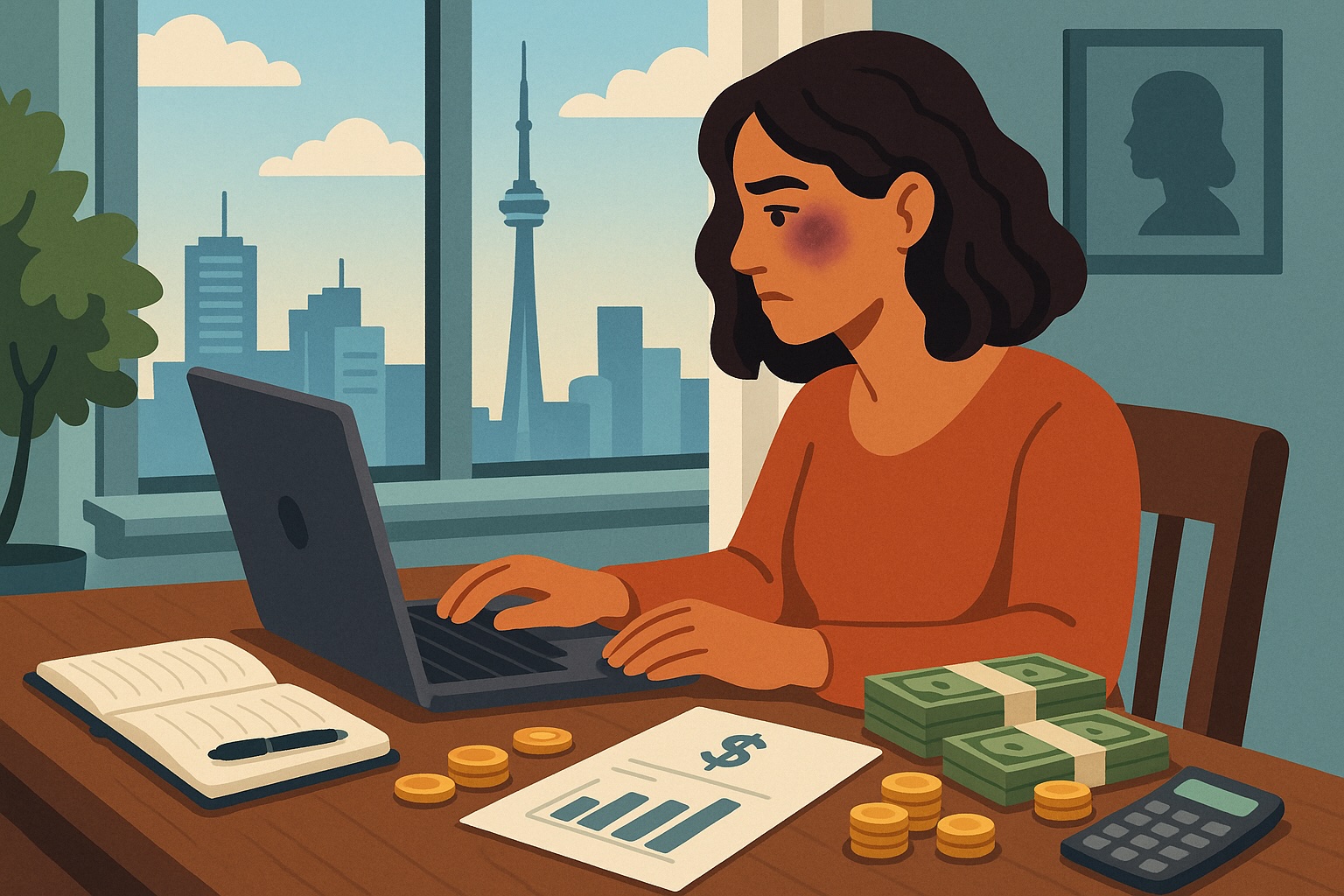Financial Independence Planning After Domestic Violence in Ontario
Leaving abuse is a major step—but building financial independence ensures long-term safety. Learn how survivors in Ontario can take control of their money, credit, and future.

Domestic violence often involves financial control—limiting access to money, sabotaging employment, or forcing financial dependency. Once you leave the abusive relationship, rebuilding your finances is crucial for long-term freedom and security.
This guide walks you through practical steps to achieve financial independence in Ontario, even if you're starting from scratch.
🚫 Signs of Financial Abuse
Being denied access to bank accounts
Having credit cards or ID taken away
Abuser opening debt in your name
Being prevented from working or attending school
Your paycheck or benefits being controlled or taken
📋 Step 1: Secure Your Financial Identity
Open a new bank account in your name at a different institution
Request a free credit report (Equifax/TransUnion) to review any damage
Contact creditors to explain your situation (some offer DV hardship programs)
Update your mailing address and security questions
Apply for a new SIN card or government ID if yours was stolen or withheld
💰 Step 2: Get Emergency Financial Help
Ontario Works (OW) or Ontario Disability Support Program (ODSP) for basic needs
Emergency shelter funds may cover food, transportation, or security deposits
Legal Aid Ontario can help with family law and restraining orders
Ask about fee waivers for court applications or ID replacement
🎓 Step 3: Build Financial Skills & Confidence
Take part in free financial literacy workshops through women’s shelters or YWCAs
Use apps like Mint or YNAB to track spending and savings
Meet with a credit counsellor (many offer free services for DV survivors)
Learn how to create a simple monthly budget
Explore microloans or grants for survivors restarting careers or businesses
👩💼 Step 4: Employment & Career Support
Ask shelters or newcomer centres about job readiness programs
Access second-career grants for women retraining after DV
Consider part-time or flexible work as a transition step
Volunteer roles can help rebuild confidence, networks, and references
🏠 Step 5: Plan for Long-Term Stability
Apply for subsidized or transitional housing in your region
Rebuild or repair your credit gradually
Set small savings goals (even $5–$10 per week)
Work with a financial advisor familiar with DV situations if possible
Healing from financial abuse takes time—but every small step counts.
📌 Summary: Financial Independence After DV
✅ Start by securing your identity and opening a personal bank account
✅ Get help with emergency benefits and financial literacy
✅ Access free job support and credit rebuilding resources
✅ Take small, consistent steps toward stability
✅ You have the right to financial control and future freedom
📞 Where to Get Help
211 Ontario – Find local financial help and employment programs
Assaulted Women’s Helpline: 1-866-863-0511
Ontario Works / ODSP: Apply through your municipality
YWCA Ontario or Women’s Shelters – Job and financial literacy programs
Credit Canada or ACORN – Free financial counselling
Frequently Asked Questions (FAQs)
1. My ex controlled all the money. Where do I even start?
The very first step is to regain some control by opening a new bank account in your name only at a bank your ex does not use. The second step is to contact a local women's shelter or the Assaulted Women's Helpline (1-866-863-0511). They can immediately connect you with resources like Ontario Works and emergency funds.
2. How can I get emergency money to leave?
The YWCA's NESS Fund is specifically designed for this. It can provide a grant to help with urgent costs like moving, first and last month's rent, or storage fees. You can apply through your local YWCA or women's shelter.
3. My credit score is ruined because of my ex. What can I do?
First, get copies of your credit reports to assess the damage. Second, dispute any debts that were opened fraudulently in your name. Third, get a secured credit card. This is one of the fastest and safest ways to start rebuilding your credit score by making small purchases and paying the bill in full each month.
4. I wasn't allowed to work. How can I get income support?
You should apply for Ontario Works (OW) immediately. They provide financial assistance while also offering employment support services, like job training programs, to help you re-enter the workforce.
5. Do I need a lawyer to get child and spousal support?
While you can apply on your own, it is highly recommended to get legal advice. A lawyer can ensure your rights are protected and you receive the full amount of support you are entitled to. Legal Aid Ontario provides free legal services for low-income survivors of domestic violence.
6. Where can I get free help with budgeting and managing debt in Ontario?
Non-profit credit counselling agencies are your best resource. They provide free or low-cost services from certified professionals who can help you create a budget, develop a debt repayment plan, and provide unbiased financial advice. Credit Counselling Canada can connect you with an agency near you.
